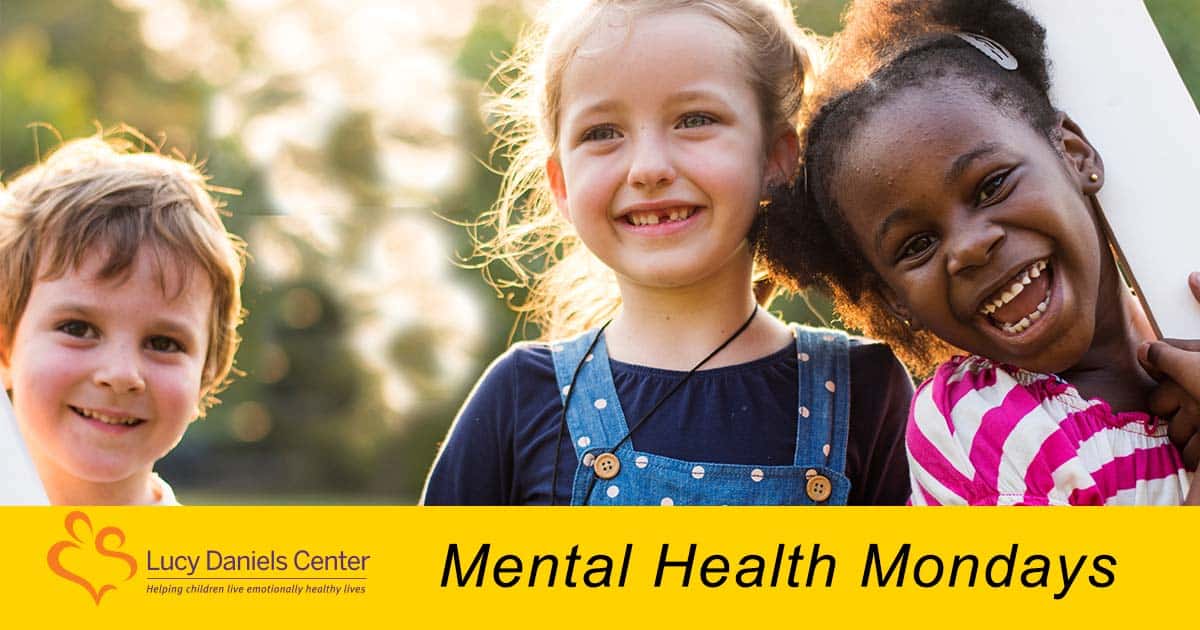Mental Health Mondays
Helping Children with School Challenges
School is a place where many of childhood’s challenges are concentrated in one place for a substantial period of time each day. Let’s consider what experiences a child may encounter on a typical school day: saying goodbye to parents and leaving the comforts of home for several hours, navigating the complexities of friendships and peer relationships without direct support and guidance from parents, handling the challenges and frustrations of learning and academic tasks, and managing a range of feelings as all of this takes place. To add to the challenge of school, these experiences take place within a schedule that is dictated by others and in an environment that has limits, boundaries, rules, and expectations.
When we consider that children are asked – or expected – to face these challenges independently day after day, we can see why some children have more difficulty at school than they do anywhere else. While extracurricular activities, playdates, and home life involve some of these developmental tasks, there really is no other place in a child’s life that all of these challenges present themselves simultaneously the way they do in the school environment.
As children become increasingly independent, teachers tend to share fewer details about the day-to-day school happenings. Parents receive periodic reports on academic progress from report cards and conferences, but hear little about the social and emotional aspects of school unless there is a particular issue that is interfering with a child’s ability to follow the rules and complete assignments. Over time, however, the social and emotional nuances of a child’s school experience can either enhance or hinder their ability to focus and fully invest in the academic aspects of school. Parental involvement and support play a key role in helping a child integrate these various aspects of their school experience.
Helping Elementary-Aged Children Reflect on (and Grow from) Their School Experiences
As children move into the elementary school years, parents can remain involved by maintaining ongoing, open discussions about the various aspects of school life. Such discussions have the potential to be helpful when they evolve over time, leaving the child with a feeling that any aspect of school (not just the parts about learning) is something that can be thought about together in a constructive way. Topics may include thinking together about how to navigate social interactions, what to do when one feels left out or bullied, or how to handle one’s feelings of pride or embarrassment in front of peers. Parents can help with putting words to experiences as a way to help their child make sense of the connections between feelings and behaviors (e.g., “It may have felt harder to concentrate on your schoolwork after that problem on the playground”).
Other topics that may be helpful to explore and think about together include how it feels:
• to work alone or independently
• to work as a member of group (teamwork and group projects)
• to speak in front of the class (when asking for help or answering a question)
• in the lunchroom
• on the playground
• when standing up for oneself
• when help is needed but not immediately available (during work periods or in social interactions)
When to Seek Help
Some children need more than supportive and reflective conversations after school to help them through the ups and downs of a school day. Children who have difficulty concentrating or completing tasks or who become disruptive in the school environment may be in need of some extra help with making sense of the feelings that come with the challenges of school. In such cases, collaboration between the school and a mental health professional may help in determining the most effective ways to support the child in his social, emotional, and academic development.
Lucy Daniels School is an emotionally safe and supportive learning environment for children preschool-5th grade. Lucy Daniels School provides an alternative choice in our therapeutic school for children who struggle emotionally and academically in a mainstream school environment. At the Lucy Daniels School, each child’s education and therapeutic program is carefully tailored to his or her needs and strengths. Parents meet regularly with a parent guidance counselor. This collaborative approach helps children progress socially and academically to become successful and competent learners.

